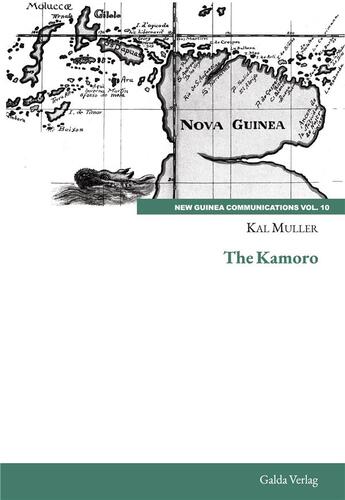Merci à toutes et à tous pour cette aventure collective
Passionné(e) de lecture ? Inscrivez-vous
gratuitement ou connectez-vous pour rejoindre la
communauté et bénéficier de toutes les fonctionnalités du site !

THE BOOK The 18,000-odd Kamoro ethno-linguistic group occupy some 300 km of land along the north shore of the Arafura Sea. Their homeland lies to the west of their better-known language relatives, the more numerous Asmat.
For better or worse, a section of the Kamoro lands lie within the contract of works area of the huge Grasberg mine operated by Freeport Indonesia, and majority owned by the Indonesian government. The mining company has financed several large-scale programs beneficial to the affected villages to compensate them for their lost sago groves.
One of these programs which I ran for 20 years helped to revive and encourage their culture and traditional woodcarving skills. Whilst I have based this book on my personal experiences on this group, I have also sought out the works of explorers, missionaries and anthropologists who have gone before me.
THE SERIES The aim is to provide a conduit for the publication of studies on the Island of New Guinea, with its two established political divisions, but will also include other associated patterns of islands.
It will enable contributions from new knowledge workers-with their dissertations-and from established scholars. As there are numerous scholars who would like better coverage of the areas in which they have explored-as a tribute to the people they have worked with-as well as local scholars who understand the importance of their unique areas. It is felt that the approaches being trialed in the visual anthropology part of the series as area studies will bring a wider attention to the remarkable nature of the island.
The first volumes will be on modes of communication: oral history and folklore, and the emergence of a local literature. While the representation of all disciplines is welcome, comparative and whole island studies would be of great interest as well. For this, collaborative works or edited volumes may be needed.
It will allow for academic publications of a more preliminary kind-rather than exhaustive monographs, which are becoming more and more impossible to produce.
Where is the knowledge we have lost?
Il n'y a pas encore de discussion sur ce livre
Soyez le premier à en lancer une !

Merci à toutes et à tous pour cette aventure collective

Lara entame un stage en psychiatrie d’addictologie, en vue d’ouvrir ensuite une structure d’accueil pour jeunes en situation d’addiction au numérique...

Un douloureux passage à l'âge adulte, entre sensibilité et horreur...

Blanche vient de perdre son mari, Pierre, son autre elle-même. Un jour, elle rencontre Jules, un vieil homme amoureux des fleurs...